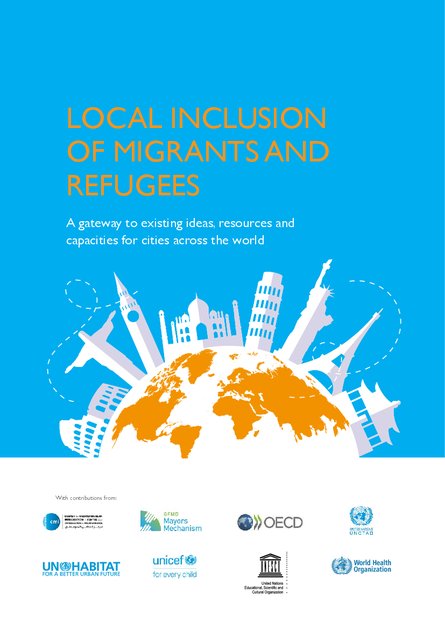
In 2018, the Global Compact on Safe, Orderly and Regular Migration (GCM) and the Global Compact for Refugees (GCR) were adopted by the vast majority of UN Member States.
During the preparatory processes for both Compacts, local authorities, among other stakeholders, were included and actively contributed to the global migration agenda. The Marrakech Mayoral Declaration (MMD, 2018) reaffirmed cities as key actors as they pledged to stand in solidarity, increase inter-city collaboration and play a critical role in shaping a more positive narrative on migration. Both Global Compacts acknowledged the importance of local authorities for shaping and implementation of these international commitments. However, while some local (city-level) authorities are successfully implementing innovative systems and approaches, others, who are also at the forefront of reception, basic service delivery, inclusion and rights protection of migrant populations, struggle and lack comprehensive guidance, resources, and capacity to move their work forward collectively.
The Center for Mediterranean Integration (CMI), the Organization for Economic Cooperation and Development (OECD), the United Nations Human Settlements Programme (UN-Habitat), the United Nations Children’s Fund (UNICEF), the United Nations Conference for Trade and Development (UNCTAD), the United Nations Education, Science and Culture Organization (UNESCO), and the World Health Organization (WHO) therefore worked together with the Mayors Mechanism of the GMFD (UCLG, MMC and IOM) to support local authorities in advancing the implementation of the Global Compacts.
The contributing organizations developed this guidance document in an attempt to:
- Provide cities with field-tested guidance to proactively shape their local inclusion measures;
- Showcase the contribution cities across the world are providing to the implementation of the SDGs, the GCM and GCR;
- Tap into cutting-edge existing support on the key dimensions contributing to local inclusion.